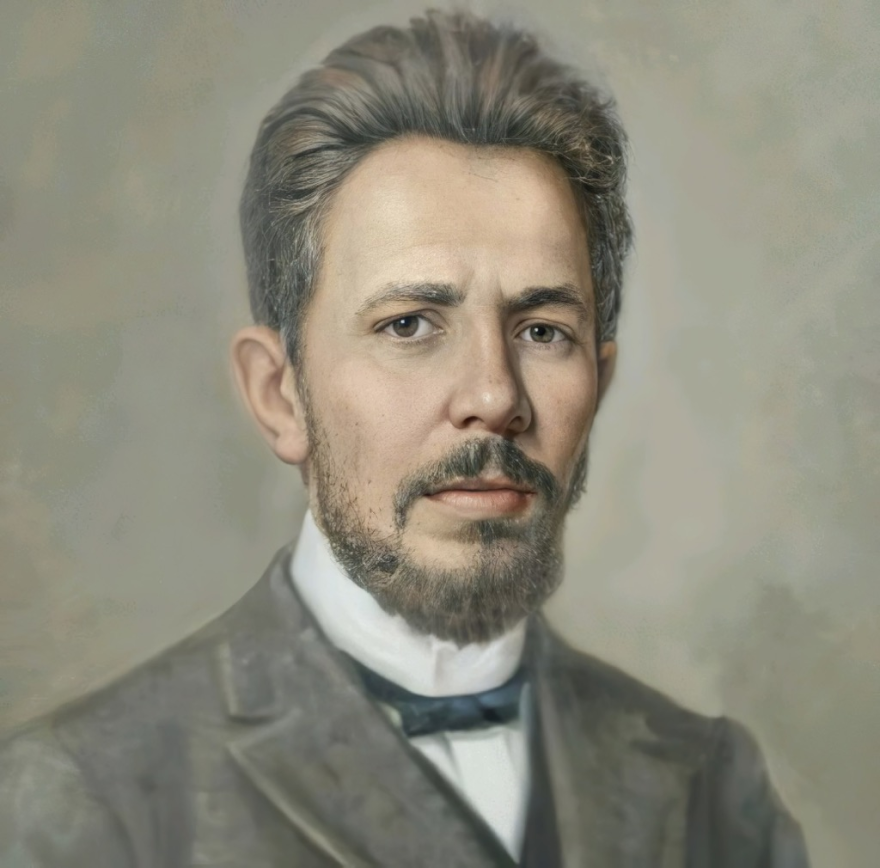Vasily Kalinnikov, a Russian composer born in 1866, is remembered for his deeply lyrical and emotionally resonant works that evoke the beauty of Russian folk music and traditions. Despite his tragically short life—he passed away at the age of 34 from tuberculosis—Kalinnikov left behind a legacy of compositions that reflect his melodic genius and romantic sensibility. Below are five of his most celebrated works that continue to captivate listeners today.
1. Symphony No. 1 in G Minor (1895)
Kalinnikov’s Symphony No. 1 stands as his most significant and best-known work. This symphony is brimming with sweeping melodies and rich orchestration, often compared to the works of Tchaikovsky and Borodin. The symphony’s passionate and poignant first movement, its serene and lyrical slow movement, and the rhythmic energy of the finale showcase Kalinnikov’s mastery of symphonic form. The work is also infused with Russian folk themes, adding a layer of national character to its romantic grandeur.
2. Symphony No. 2 in A Major (1897)
Following the success of his first symphony, Kalinnikov composed his Symphony No. 2, which builds on the emotional and melodic strengths of its predecessor. While not as widely performed as his first symphony, it remains a testament to his ability to craft beautiful, flowing lines and vivid orchestral textures. The second symphony reflects a more optimistic tone, with a radiant first movement, a playful scherzo, and a triumphant conclusion, making it a favorite among his admirers.
3. Overture to Tsar Boris (1899)
This overture is based on the tragic life of Boris Godunov, the Russian Tsar. Overture to Tsar Boris is a dramatic work that captures the grandeur and tension of Russian history. It begins with a stately introduction, evoking the image of a royal procession, and builds into more turbulent sections filled with emotional intensity. The work showcases Kalinnikov’s talent for creating vivid, programmatic music that tells a story through its themes and orchestration.
4. Serenade for Strings in G Minor (1891)
The Serenade for Strings is a lush, romantic piece that highlights Kalinnikov’s lyrical gift. Written for a string orchestra, the serenade is both tender and melancholic, with an intimate quality that draws the listener in. The flowing melodies and delicate interplay between the instruments make this work a showcase of Kalinnikov’s sensitivity to texture and harmony. It remains a popular choice for string ensembles due to its emotional depth and graceful charm.
5. The Cedar and the Palm (1898)
Based on a poem by Heinrich Heine, The Cedar and the Palm is one of Kalinnikov’s most evocative vocal works. The piece tells the story of two trees—the cedar from the north and the palm from the south—longing for each other despite their separation. The music captures the wistful and bittersweet nature of this tale, using rich harmonic progressions and sweeping vocal lines to create an atmosphere of longing and beauty. This work is often performed in choral and solo arrangements.
Conclusion
Vasily Kalinnikov may not have had a long life, but his compositions reflect the heart and soul of Russian romanticism. His works are filled with lush melodies, emotional depth, and a strong sense of national identity. From his symphonies to his intimate vocal pieces, Kalinnikov’s music remains a testament to his remarkable talent and continues to resonate with audiences worldwide.


Comments are closed